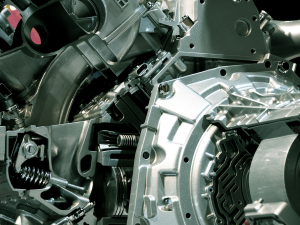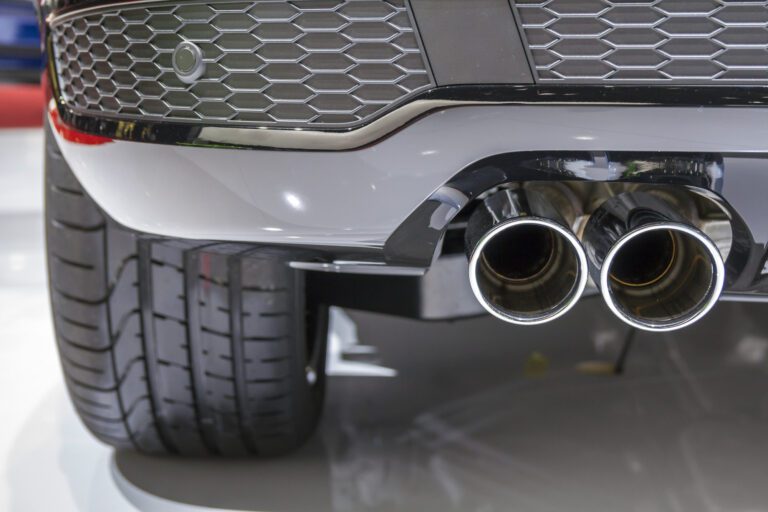How to Tell If You Need a New Transmission
Noticing leaks, strange noises, and delays in shifting gears may signal the need for a new transmission. It’s crucial to pay attention to these signs and seek professional advice if necessary.
Is your vehicle showing signs of trouble when switching gears or making unusual noises? These could be indicators of transmission issues that might require immediate attention. In this guide, we’ll explore common signs that suggest your transmission might need replacing.
By being aware of these warning signals, you can prevent further damage to your vehicle and possibly save money on costly repairs. Let’s delve into the key symptoms that may indicate it’s time for a new transmission.

Credit: www.cashautosalvage.com
Signs Of Transmission Problems
When it comes to your car’s transmission, recognizing the signs of trouble early on can save you from costly repairs down the road. Paying attention to the following indications can help you determine if your car’s transmission needs attention.
Leaking Fluid
Leaking transmission fluid is an unmistakable sign of a problem. If you notice red, brown, or pink fluid pooled beneath your car, it could indicate a leaky transmission. Addressing this issue promptly can prevent further damage to your vehicle.
Strange Noises
Unusual sounds coming from your car, such as whining, grinding, or clunking, can be indicative of transmission trouble. Listen for these noises when shifting gears or while the car is in motion, and seek professional diagnosis if they persist.
Burning Smell
If you detect a burning odor, especially when the car is running, it may be a sign of overheating transmission fluid. This can be caused by various issues such as worn-out components or fluid breakdown, and warrants immediate attention from a mechanic.
Effects Of A Failing Transmission
When your vehicle’s transmission starts failing, it can lead to various noticeable effects. Identifying these signs can help you determine if it’s time for a new transmission. Here are some common symptoms to watch out for:
Difficulty Shifting Gears
If you notice struggling to shift between gears, especially when moving from park to drive or reverse, it could be a sign of a failing transmission.
Slipping Gears
Gears slipping while driving can indicate a transmission problem. This may feel like your vehicle is struggling to maintain speed or suddenly losing power.
Delayed Engagement
A delay in your vehicle’s response after shifting gears may suggest an issue with the transmission. Waiting for the car to engage into gear is a red flag.
Diagnosing Transmission Issues
If you’re experiencing issues with your transmission, there are a few signs that may indicate you need a new one. Look out for problems like slipping gears, delayed engagement, fluid leaks, strange noises, or burning smells, as these can all signal transmission trouble.
Check Engine Light
The Check Engine Light can indicate transmission problems. Ensure to run a diagnostic scan using an OBD-II scanner.
Transmission Fluid Level
Check the transmission fluid level regularly using the dipstick. Low fluid levels could be a sign of potential issues.
Transmission Fluid Condition
Inspect the transmission fluid color and smell. Clean red fluid indicates a healthy transmission, while dark or burnt-smelling fluid may signal a problem.

Credit: www.lexusofsilverspring.com
Cost Of Transmission Repair
When it comes to your vehicle’s transmission, understanding the potential costs involved in repairs is crucial. The cost of transmission repair can vary widely, depending on the extent of the damage and the type of repair needed. Being able to identify when you need a new transmission and understanding the associated costs can save you from unexpected expenses and help you make informed decisions about the maintenance of your vehicle.
Labor Costs
Labor costs for transmission repair can range from $500 to $1200, depending on the make and model of your vehicle and the specific repairs required. The complexity of the transmission system means that labor costs can quickly escalate, especially if the transmission needs to be removed and disassembled for repairs.
Parts Costs
Parts costs for a transmission repair can vary widely depending on the type and extent of the damage. Replacing a transmission can cost anywhere from $1,800 to $3,400, while minor repairs such as replacing solenoids or gaskets may cost between $300 and $1,500.
Importance Of Regular Maintenance
Owning a car entails taking responsibility for its upkeep. Regular maintenance is crucial to ensure the longevity and performance of your vehicle. One significant aspect of maintenance is keeping an eye on your transmission. Your car’s transmission plays a vital role in delivering power to the wheels and shifting gears smoothly. To prevent major issues and expensive repairs, it is important to be aware of when you might need a new transmission. By recognizing the signs early on, you can take the necessary steps to keep your car running smoothly and safely.
Fluid And Filter Changes
Regular fluid and filter changes are essential for the health of your transmission. Over time, the transmission fluid can become contaminated with dirt, debris, and metal shavings. This can affect the lubricity and performance of the transmission, leading to potential damage. By adhering to the manufacturer’s recommended service intervals, you can ensure that your transmission fluid is clean and the filter is free from debris.
Inspection And Servicing
Another important aspect of transmission maintenance is regular inspection and servicing. A trained mechanic can identify any potential issues, such as fluid leaks, worn-out parts, or unusual noises. Early detection of these problems can help prevent further damage and the need for a complete transmission replacement. It is recommended to have your transmission inspected by a professional at least once a year or as specified by your car’s manufacturer.

Credit: www.brownsvilletoyota.com
Frequently Asked Questions Of How To Tell If You Need A New Transmission
How Will I Know If I Need A New Transmission?
If you experience slipping gears, delays in shifting, or strange noises, you may need a new transmission. Look for leaks and check the fluid color. An inspection by a mechanic will determine if a replacement is necessary.
How Do You Know If Your Transmission Is Going Bad?
Signs of a failing transmission include slipping gears, unusual noises, leaking fluid, and a burning smell. Check engine light, delayed shifting, and grinding sounds are also indicators.
When Should Transmission Be Replaced?
Transmission should be replaced if it is slipping, making strange noises, or showing signs of fluid leaks. Additionally, if your vehicle struggles to shift gears or experiences delayed engagement, it may be time for a replacement. Regular maintenance can help prevent the need for premature transmission replacement.
Is It Worth Replacing A Transmission?
Yes, replacing a transmission can be worth it if the cost is less than buying a new car. It depends on the car’s value and your budget.
How Can I Tell If My Car Needs A New Transmission?
Signs that your car might need a new transmission include slipping gears, delayed engagement, and leaking fluids.
What Are The Symptoms Of A Failing Transmission?
Symptoms of a failing transmission can include strange noises, burning smell, difficulty shifting gears, and a warning light on the dashboard.
How Long Does A Transmission Typically Last?
On average, a transmission can last around 150,000 to 200,000 miles, but it depends on factors like maintenance, driving habits, and the vehicle’s make and model.
Conclusion
Recognizing signs of transmission issues can save you from bigger problems later. If you experience strange noises, slipping gears, or delays in shifting, it may be time for a replacement. Remember to keep up with regular maintenance and address any concerns promptly to ensure your vehicle’s longevity and performance.

